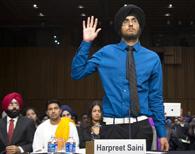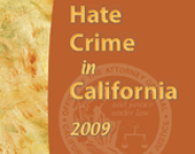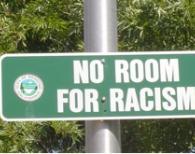FBI to investigate murder of Mississippi mayoral candidate as hate crime
CREDIT: Alternet
The FBI will investigate the brutal murder of Marco McMillan, an openly gay man who was running to become mayor of Clarksdale, MS, following an appeal from his family and numerous civil rights groups.
hate crime reporting

Harpreet Singh Saini is sworn in before testifying. Photo Credit: AP
“I want to tell the gunman who took her from me: You may have been full of hate, but my mother was full of love,” said Harpreet Singh Saini, who lost his mother in the tragic hate crime killings at a Sikh gurdwara in Oak Creek Wisconsin on Aug. 5.

Rhode Island is now the 13th state to include gender-identity and expression in its hate crime laws.
The Transgender Hate Crimes Monitoring Bill (S2488) was introduced to the Rhode Island General Assembly on February 16. It passed the Rhode Island House on May 24, and Governor Lincoln D Chafee signed the bill on May 30.
The Transgender Hate Crimes Monitoring Bill assists in the research and safety of Rhode Island’s transgender population. In addition, because the bill addresses all hate crimes committed from gender identity or expression bias, victims of all gender identities are protected under this statute.
Specifically, the bill adds gender identity and expression to Rhode Island’s hate crimes reporting statute, which already specified race, religion, gender, disability and sexual orientation as motivating prejudices.
This now requires Rhode Island State Police to not only report hate crimes based on gender identity and expression, but to also undergo mandatory training regarding the handling of gender identity and expression related hate crimes.

Members of San Francisco's Coalition on Hate Violence say that California's recently-released hate crime report represents a cause for deep concern, but not for reasons you might expect.
According to "Hate Crime in California 2009," released mid-July by the California Department of Justice, there was a 21.3 percent decrease in hate crime incidents last year, from 1,397 incidents in 2008 to 1,100 in 2009.
But coalition members, who represent a cross-section of law enforcement, constituency groups and non-profits, say this apparent decline may not represent an actual drop in hate crime, but a decrease in the reporting of those crimes. As we described in an earlier blog post, hate crime is often under-reported for a variety of reasons ranging from victim fear or lack of access to law enforcement to untrained or resistant police and district attorneys.
Coalition members looked at the statistics for hate crimes in San Francisco -- 80 reported events in 2008, compared to 29 in 2009 -- and said those numbers don't match what their own organizations are seeing on the ground.

Oregon has just made it easier to report hate crimes--do it online.
That's what the Department of Justice came up with after a meeting of the LGBT community in Portland, called in response to gay-bashings in the city.
Sean Riddell (pictured above, on right), chief counsel for the criminal justice division of Oregon’s Department of Justice, was at the meeting, and was “struck by the number of people who said they’d been the victim of a hate crime and didn’t report it,” says Tony Green, Riddell’s colleague and DOJ spokesman.
Why don't people report hate crimes? Fear of retribution; embarrassment; maybe it's too hard to walk into a police station and fill out the forms. There are a lot of reasons; and that concerned the state's attorney general.

How an Anti-Racist Community Group Evolved from Being a Watchdog to a Partner of Law Enforcement

